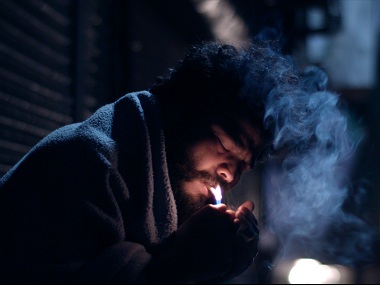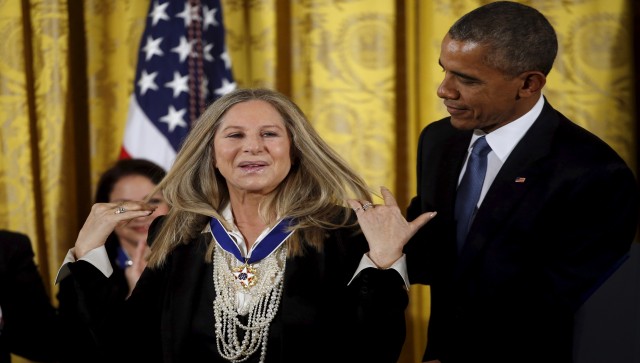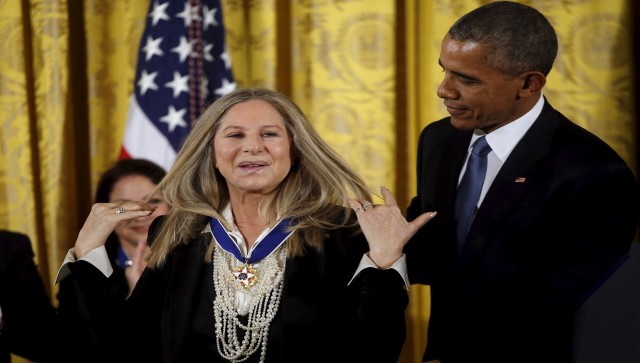“When we started writing Iewduh one and a half years before going on floors, we felt lost about how to paint the characters,” says Pradip Kurbah, 42, director of Iewduh (Market). “We were lost for so many days on which way to go. Sometimes we felt like we were not doing justice to any of the characters.” He admits he almost gave up. But he didn’t.
Like Mike (Albert Mawrie), the film’s protagonist, who never gives up on the people of his beloved market, some of whom would be well and truly lost without him. Mike, the attendant at a urinal in Iewduh, who doesn’t let the nature of his job distract him from his purpose. Mike, that rare creature: a decent man. In a different film, he might even be considered naive. But nothing’s remotely naive about Kurbah’s vision of Iewduh. His film collects the stories of a motley group of people making a living in the narrow and winding lanes of this bustling market in Shillong, puts the big, beating heart of Mike smack in its middle and ties it all up in a prim knot to paint a vibrant portrait of Iewduh itself. These are people who look out for each other, share their joys and sorrows, lean this way and that and let their dreams venture out above the cacophony of voices and the noise.
“Some of them look like they are competitors, some of them are closer to each other than their own families,” says Kurbah. “They co-exist together and it is the market that binds them.” Iewduh, the market that binds them, is in turn created and nourished by their presence. Then there are the absent ones, whose memories linger in the lanes or who are kept alive by those who remember and long for them. For everyone in Iewduh seems to be waiting. Hep, the teenager back from rehab whom Mike brought in to live with him, waits for his mother. Lamare, the dementia-ridden homeless man, will not leave his post because he believes his son is coming to meet him and take him away. Priya, hunched over the pile of ragtag clothes she sells, is waiting to be heard. Mike is waiting to ask out the girl he fancies. Suraj, addicted to drugs, is tired of waiting itself. Everyone, apart from the man with the guitar who croons away day and night in the centre of the market, setting the unique rhythm of Iewduh.
Kurbah achieves the commendable feat of putting together the pieces that form the giant mural of Iewduh while preserving their identities and nourishing them individually. As their lives begin to intertwine over the course of the film, these characters create a filigreed portrait of the market. Kurbah’s filmmaking is particularly deft in the first 50 minutes. He does an able job of setting a firm foundation for his film in the form of Mike. He’s the man without a past who enables the present of the people in the market. He believes in their hopes and dreams, helps them get by and laughs and weeps along with them.
Despite the scale of the cast and the size of the market, Kurbah never panders to the stereotypes films set in small towns often fall prey to. The film teems with the knowledge and earnestness that stems from his intimate relationship with the town. He attributes his filmmaking prowess to the time he spent in Bollywood and the Telugu film industry. “The knowledge and experience that I gained from there has really helped me in telling my own stories to the world,” he says. He started making feature films once he returned to Meghalaya. Ri, his debut feature on the insurgency period in the state, won a National Award while his second, Onaatah, handled the delicate subject of a rape survivor.
Iewduh is clearly a step up in terms of scale. Shooting in such a crowded market must have made incredible demands from the crew. Not to forget the presence of non-professional actors. A film like Iewduh is balanced precariously on the shoulders of its massive cast. Months upon months of rehearsals went into the preparation for the shoot. “We took them (the actors) inside the market to rehearse and observe people for them to blend in, which helped during the shoot and the actors were more relaxed to play their roles,” Kurbah says. Then there was the issue of the market itself. “Every 10 minutes the whole market is crowded and next minute it is empty,” he says. In a few days, everyone in the market started getting used to the presence of a camera in their midst. Some of them even began to encourage their endeavour by requesting customers to be more discreet.
The visible effort from Kurbah’s cast and crew has resulted in an intimate film that is generously endowed with compassion. It’s a tribute to the ordinary person and the significance of their little conflicts, joys and sorrows. In a film where everyone seems to know everyone else, Kurbah is not unmindful of the voices that can often go unheard. The quaintness of the small town market at night gently thrumming to the crooner’s melodies is punctured by screams of pain. Everyone hears them. Everyone ignores them or, like Mike and Hep, passes over in silence, letting the screams take centre stage. The disarming simplicity of a small town can often be misleading. Kurbah devotes time to exploring it and the tragic consequences it can have. Mike and the audience will soon discover that he cannot save everyone. More importantly, they’d discover that one doesn’t need to be a saint to help without expecting anything in return. It’s simply the decent thing to do.
Iewduh is at its weakest when it tries to force humour into its narrative. It belies the bittersweet nature of its story that provides ample room for laughter in and of itself. The organicity of the narrative goes momentarily awry for a bit as well. The tragic incident that forms the most shocking moment of the film injects a sense of urgency to the story that is never followed up with aplomb. It upsets the apple cart which seems to come back into position too easily, thereby distracting from its disarming intimacy. We’ve become too close to these characters by then not to notice the strange changes in their behaviour. But the ending more than makes up for the few lapses in concentration the film is guilty of. It is heartwarming, quietly distilled and finely lodged into the heart of Iewduh.
Kurbah believes that his film is about a person who has found a purpose in life. “If you know your life is important and you know your goal is a positive one you can suffer through almost any defeats without giving up or quitting,” he says. Mike is indeed the soul of the film, the one who brings it all together, the one who listens to everyone and empathises with them. He is a person you can trust. And he certainly lives up to Kurbah’s trust, charming us into spending one and a half hours with a cast of characters whom we’d expect to run into whenever we visit his beloved market. During its best moments, Iewduh will make you want to believe that you already have.


)




)
)
)
)
)
)
)
)